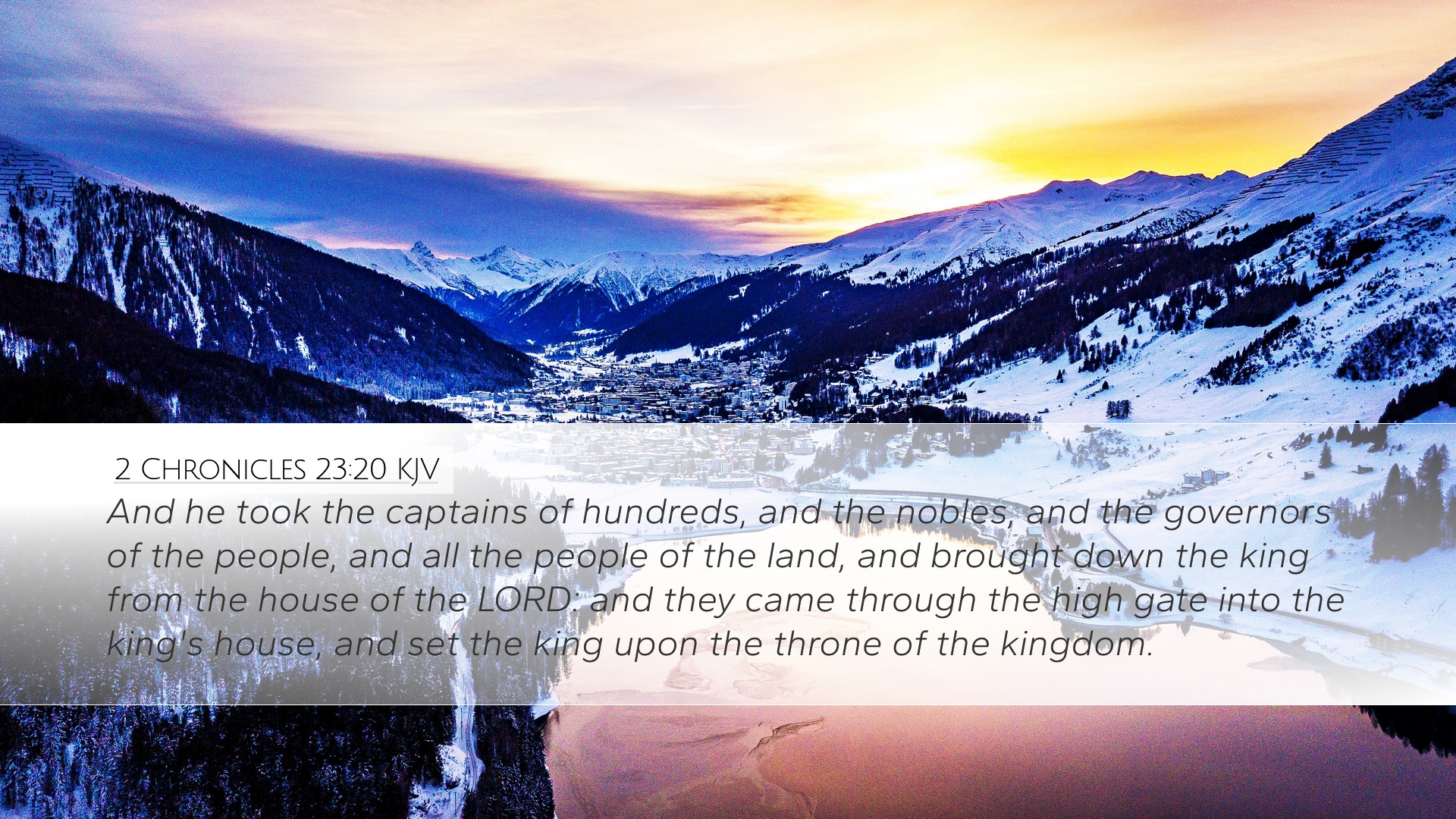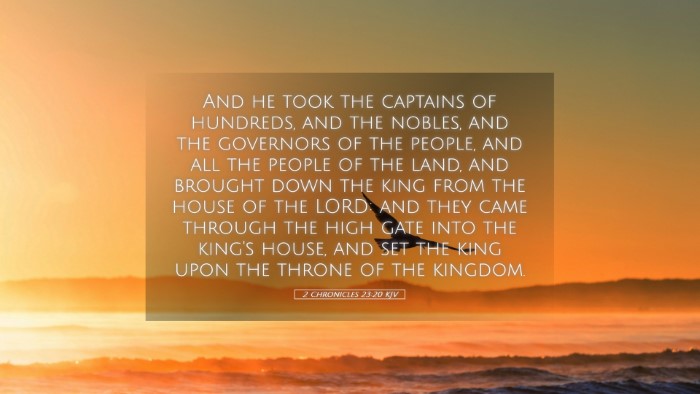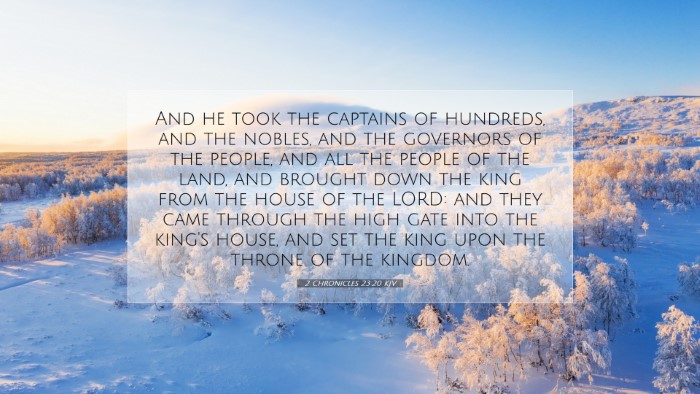Commentary on 2 Chronicles 23:20
“Then he took the captains of hundreds, and the nobles, and the governors of the people, and all the people of the land, and brought down the king from the house of the LORD: and they came through the high gate into the king’s house, and set the king upon the throne of the kingdom.”
Contextual Overview
The Book of 2 Chronicles is renowned for its historical account and spiritual insights concerning the kings of Judah. The passage in 2 Chronicles 23:20 occurs at a critical junction—the restoration of rightful leadership after a period of tyranny and idolatry imposed by Queen Athaliah.
Athaliah's reign, marked by oppression and infidelity to Yahweh, engendered a desperate need for a return to proper worship and governance. This chapter introduces the young king Joash, who is prepared for his public acknowledgment and enthronement, representing the culmination of a substantial movement led by Jehoiada, the high priest.
The Role of Jehoiada
Jehoiada is central to the restoration of the Davidic line and represents the faithful remnant devoted to God’s covenant. His actions emphasize the importance of leadership grounded in worship and covenant fidelity.
Henry notes that Jehoiada carefully assigned roles to the captains of hundreds, the nobles, and the governors of the people, showcasing his organizational acumen. Each one had a critical task to ensure that the coronation was conducted smoothly, demonstrating the significance of collaborative leadership in spiritual renewal.
Barnes asserts that the gathering of these leaders symbolizes unity among the people of Judah. It marked a departure from idolatrous practices and a return to the rightful worship of God. The involvement of the military leaders reflects not only their support for the boy king, Joash but also their commitment to restoring the nation’s integrity before God.
The Process of Restoration
The act of bringing the king down from the temple to the palace encapsulates a transition from sacred space to civic authority. The temple represents the divine authority that Joash inherits, while the palace signifies his earthly rule.
Clarke emphasizes that this descent is symbolic of the integration of spiritual and temporal power. The high gate through which they passed may point towards a significant entrance echoing the triumphal entries in Scripture, suggesting that this moment is divinely orchestrated.
The Significance of the Throne
When they set Joash upon the throne, it was the affirmation of God’s promise to David—that his line would endure. The throne becomes a symbol of covenant faithfulness, not merely of political power.
Henry highlights the need for the people’s participation in this enthronement. It was a collective act of recognition, representing the desire for a king who would uphold and restore the covenant with Yahweh.
Furthermore, this event fosters communal identity among the people as they pledge their allegiance to a divinely appointed king, reconnecting them with their history and covenantal responsibilities.
Thematic Insights
- Leadership and Responsibility: The passage highlights the vital role of leaders who are committed to God and His purposes. The responsibility of spiritual guidance rests heavily on those in authority.
- Covenant Faithfulness: The restoration of Joash to the throne signifies God’s adherence to His promises, inviting reflection on human fidelity to divine covenants.
- Community Engagement: The active involvement of the people illustrates the importance of communal participation in restoring godliness in society.
- Divine Sovereignty: The orchestrating of events underlines God’s sovereignty, guiding circumstances to fulfill His redemptive plan despite human failures.
Application for Today
In contemporary settings, 2 Chronicles 23:20 encourages leaders—pastors, theologians, and scholars—to evaluate their commitment to God’s principles. The necessity of fostering communities that reflect God’s kingdom is paramount, just as it was in Judah’s restoration.
The passage challenges believers to consider how they respond to leadership and authority, ensuring their support is rooted in spiritual integrity and covenant loyalty. It also calls for a collective awakening, urging congregations to be actively involved in the pursuits of godliness and justice in their respective societies.
Conclusion
The installation of Joash as king serves as a powerful reminder of the collective commitment to God’s covenant and the transformative potential of divinely sanctioned leadership. The passage invites all readers to reflect on their roles in God's redemptive history and their responsibilities in advocating for a return to faithful living.
As scholars and pastors delve into these verses, let it inspire a vision for leadership that echoes the ancient call for fidelity, engagement, and restoration within the community of believers.


